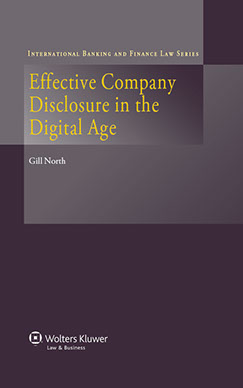
Overview
I am a professor in the law school at Deakin University and a member of its Centre for Comparative Corporate Governance, and also an adjunct associate professor in the law school of the University of Western Australia. After completing a first class honours law degree, I was awarded a doctorate in law from the University of New South Wales in 2011.
Prior to joining academia, I worked at multinational corporations and investment banks in the major financial centres (London, Tokyo, New York and Sydney), where my roles included senior executive positions in the areas of corporate strategy, corporate finance, mergers and acquisitions, and funds management. I am a chartered accountant and experienced financial analyst, as well as a law academic, and I draw on this diverse background and experience when examining policies and conduct that might promote longer term and more sustainable decision making by corporations and improve the fairness, efficiency and transparency of financial markets.
I am Treasurer of the Corporate Law Teachers Association (CLTA) and an active member of the Sustainable Market Actors for Responsible Trade (SMART) and the Banking and Financial Services Law Association (BFSLA).
I endeavour to live life to the full. A favourite recreation is walking along the beach with my loyal and loving two legged and four legged companions, namely my husband, labradoodle and golden retriever.


Key Research Areas
I have published extensively in Australia and internationally on the governance, reporting and sustainability of corporations. Recent papers include:
• ‘Corporate sustainability practices and regulation: Existing frameworks & best practice proposals’; ‘
• ‘Company reporting of environmental, social and gender matters: limitations and barriers’; and
• ‘Corporate supply chain management and reporting: A fundamental change in approach or window dressing?’.
I have also published widely on the law and practice of international finance, financial markets, financial services, investments and consumer finance. Recent papers include:
• ‘Well governed, sustainable and socially responsible financial corporations: Remote or real expectations?’;

Effective corporate reporting and disclosure are critical in financial markets to
promote vigorous competition, optimal performance, and transparency. This book
examines whether existing disclosure frameworks in eight countries with the world’s
most significant securities exchanges achieve these objectives, and then, drawing on
extensive empirical findings, identifies the policies and practices that contribute most to
improving the overall quality of listed company reporting and communication.
Contending that public disclosure of listed company information is an essential
precondition to the long-term efficient operation of financial markets, the book provides
analysis of such issues and topics as the following:
– arguments for and against mandatory disclosure regimes;
– key principles of periodic and continuous disclosure regulation;
– tensions between direct and indirect investment in financial markets;
– assumptions concerning the need to maintain a privileged role for financial intermediaries;
– intermediary, analyst, and research incentives;
– protection of individual investors;
– selective disclosure;
– disclosure of bad news;
– the role of accounting standards;
– public access to company briefings;
– long term performance reporting and analysis; and
– company reporting developments.
A significant portion of the book provides an overview of disclosure regulation and
practice in the United States, Canada, Germany, the United Kingdom, Japan, Hong
Kong, Australia, and Singapore. A highly informative survey looks at company reports,
disclosures, and websites of large listed companies, including Microsoft, Citigroup,
Teck Resources, Deutsche Bank, BP, Sony, PetroChina Company, BHP Billiton, and
Singapore Telecommunications.
The book discusses common disclosure issues that arise across jurisdictions, provides
valuable insights on the efficacy of existing disclosure regulation and practice, and
highlights the important principles, processes, and practices that underpin best practice
company disclosure frameworks. It will be welcomed by company boards and executives
and their counsel, as well as by policymakers and scholars in the areas of corporate,
securities, banking and financial law, accounting, economics and finance.
